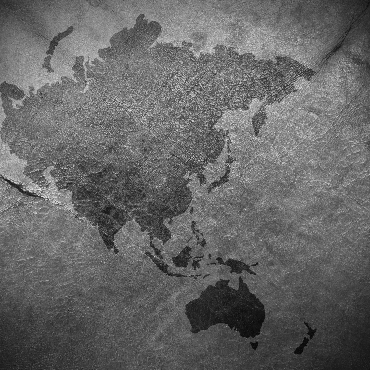A BUDDING ETHIOPIAN REFUGEE CRISIS
Civilians caught in the middle of what could soon become a full-fledged civil war in Ethiopia are fleeing to Sudan. On November 3rd, the Ethiopian government launched what it claims was a retaliatory attack against the country's leading domestic opposition group, the Tigray People's Liberation Front (TPLF). Since then, hundreds of people have been killed in the fighting, and over eight thousand are believed to have fled across the country's common border with Sudan, which the Tigray region borders.
The situation, moreover, is poised to get much worse. Experts estimate that the TPLF possesses a significant percentage, if not an outright majority, of available military arms in the country, and as a result the potential for the conflict to intensify is high. Moreover, Sudan's ability to absorb the flood of migrants into its southeastern regions is limited due to its own precarious economic and social situation, and the Sudanese military has moved to close its border with Ethiopia in order to prevent the growing influx of Ethiopian refugees. (Reuters, November 10, 2020)
ALLEVIATING MOROCCO'S WATER WOES
By way of a state-backed corporate creditor, the Spanish government will provide 5 million Euros to Morocco's National Office for Electricity and Drinking Water (ONEE). The loan will help fund seawater desalination plants in Assa-Zag and Moulay Brahim, two rural inland desert towns. ONEE has engaged with other loan providers in Europe for similar purposes; in October, the office secured a loan of 30 million Euros from the German Development Bank (KfW) to fund other desalination projects in the North African country. Water security is a topic of increasing concern for Morocco, much of which is rural and now facing "notable deficits" - with dams throughout the country filling at a lower-than-normal rate in recent years. (Morocco World News, November 4, 2020)
RUSSIAN SHIPS IN SUDANESE WATERS
The Russian government, in conjunction with its Sudanese counterpart, is planning to build a logistics hub in the Red Sea city of Port Sudan. The base could conceivably host as many as 300 servicemen and support personnel, as well as up to four ships, at any given time once completed. The agreement is a legacy project, having been signed between Moscow and Khartoum while the old regime of strongman Omar al-Bashir was still in power. The country's new transitional government, however, appears eager to maintain the relationship with the Kremlin begun under Bashir - which entails access to Sudanese ports for Russian warships in exchange for military training, financial support, expansion of joint mining ventures, and increased wheat exports. (Reuters, November 11, 2020)
CHINA EYES THE CONGO'S COBALT
China's Nanjing Hanrui Cobalt Co. is expected to begin extracting cobalt in the Democratic Republic of the Congo by the end of the year. When Nanjing Hanrui's mine reaches full production, the firm expects to extract roughly 5,000 tons of the rare earth material per year. Net annual demand for cobalt, which is used in smartphones and lithium batteries, was estimated to be 120,000 tons worldwide in 2020. Nor is Nanjing Hanrui the first Chinese firm to make inroads into the DRC's mining sector; Chinese extraction companies with connections to the country's ruling Communist Party have been active in the Congo for some time, sparking controversy over their activities in the process. (NASDAQ, November 3, 2020)
SEYCHELLES ELECTION IMPEDES INDIAN NAVAL AMBITIONS
The results of the most recent election in the Seychelles could spell the end of India's naval ambitions in and around the African island nation. The country's president-elect, Wabel Ramakalawan, is a prominent politician who has, for years, signaled his opposition to foreign military involvement and basing in the country. Now that he holds the nation's top job, ratification of a major deal, inked back in 2015, for India to establish a naval base there appears unlikely. The concerns of Ramakalawan and his supporters revolve around issues of sovereignty and ownership of the base, as well as its environmental impact. The results, however, are likely to be a blow to India, which is attempting to position itself as a counterweight to China's expansion in the Indian ocean and on the African continent. (Telegraph India, October 27, 2020)
NIGER: NEXT TO NORMALIZE?
Israel and the African nation of Niger are reportedly in talks to normalize relations. Eli Cohen, head of Israel's intelligence service, the Mossad, recently revealed that his government "has carried out secret contacts" with officials in Abuja. However, the likelihood of a normalization deal between the two depends greatly on the outcome of the upcoming Nigerien general election, which will take place on December 27th. The favored candidate, Mohamed Bazoum, who has held a number of ministerial positions under the current administration of Mahamadou Issoufou, has advocated for the normalization of relations with Israel in the past. However, ongoing demonstrations regarding tax hikes and poor living conditions may hinder Bazoum's latitude in striking a deal. If it does move forward with such an agreement, however, Niger would be the second North African country to normalize relations with Israel (Chad being the first.) (Asharq al-Awsat, November 14, 2020)
Want these sent to your inbox?
Subscribe


